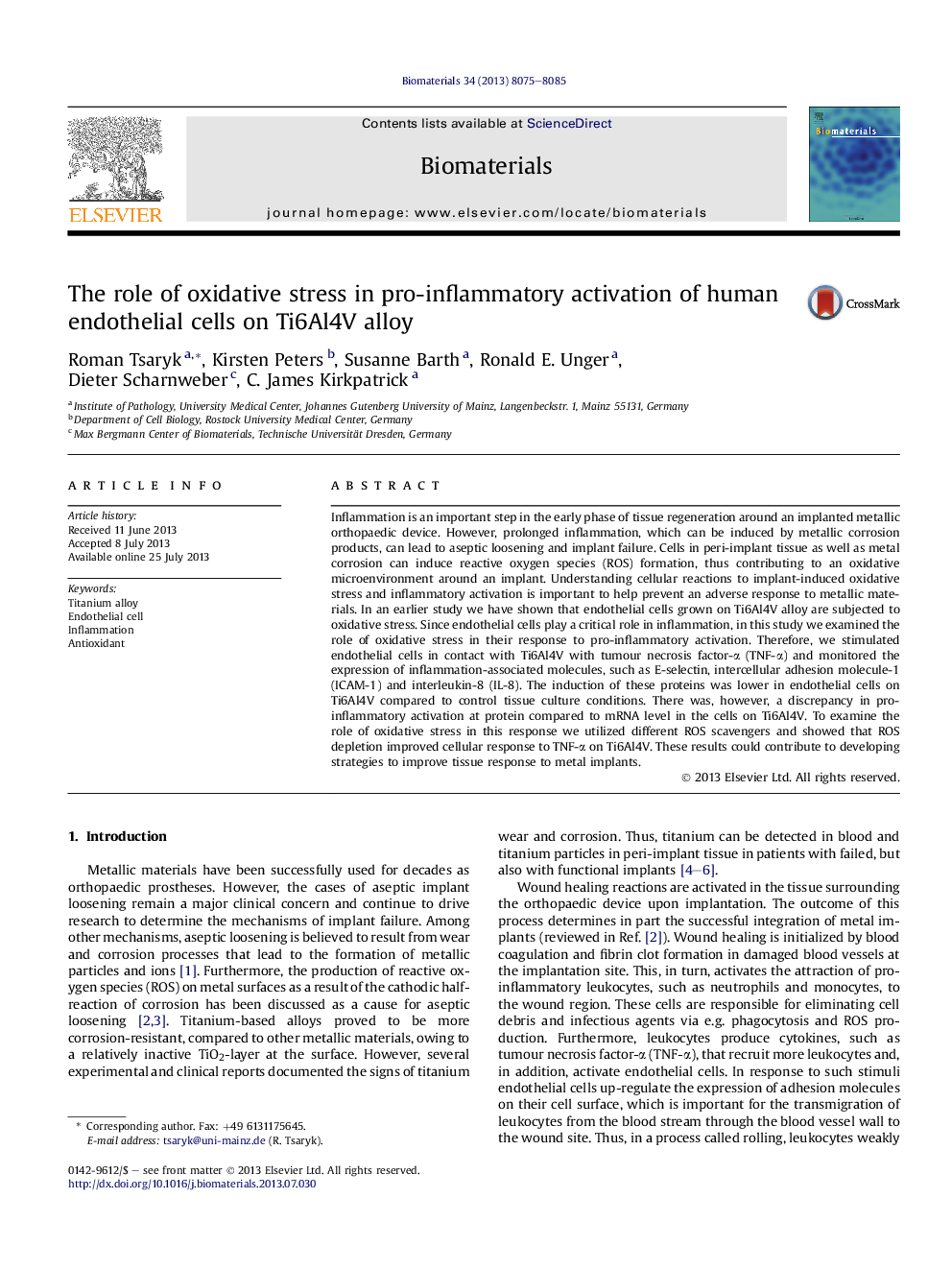| Article ID | Journal | Published Year | Pages | File Type |
|---|---|---|---|---|
| 10228465 | Biomaterials | 2013 | 11 Pages |
Abstract
Inflammation is an important step in the early phase of tissue regeneration around an implanted metallic orthopaedic device. However, prolonged inflammation, which can be induced by metallic corrosion products, can lead to aseptic loosening and implant failure. Cells in peri-implant tissue as well as metal corrosion can induce reactive oxygen species (ROS) formation, thus contributing to an oxidative microenvironment around an implant. Understanding cellular reactions to implant-induced oxidative stress and inflammatory activation is important to help prevent an adverse response to metallic materials. In an earlier study we have shown that endothelial cells grown on Ti6Al4V alloy are subjected to oxidative stress. Since endothelial cells play a critical role in inflammation, in this study we examined the role of oxidative stress in their response to pro-inflammatory activation. Therefore, we stimulated endothelial cells in contact with Ti6Al4V with tumour necrosis factor-α (TNF-α) and monitored the expression of inflammation-associated molecules, such as E-selectin, intercellular adhesion molecule-1 (ICAM-1) and interleukin-8 (IL-8). The induction of these proteins was lower in endothelial cells on Ti6Al4V compared to control tissue culture conditions. There was, however, a discrepancy in pro-inflammatory activation at protein compared to mRNA level in the cells on Ti6Al4V. To examine the role of oxidative stress in this response we utilized different ROS scavengers and showed that ROS depletion improved cellular response to TNF-α on Ti6Al4V. These results could contribute to developing strategies to improve tissue response to metal implants.
Related Topics
Physical Sciences and Engineering
Chemical Engineering
Bioengineering
Authors
Roman Tsaryk, Kirsten Peters, Susanne Barth, Ronald E. Unger, Dieter Scharnweber, C. James Kirkpatrick,
